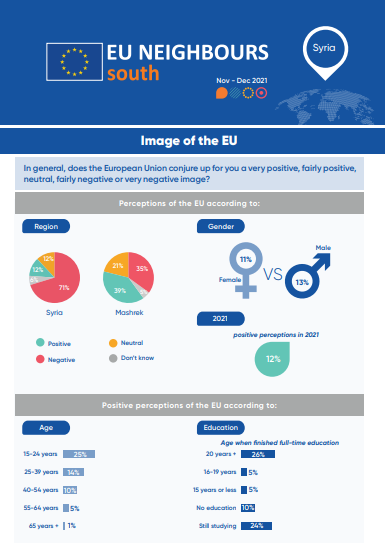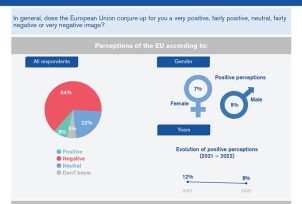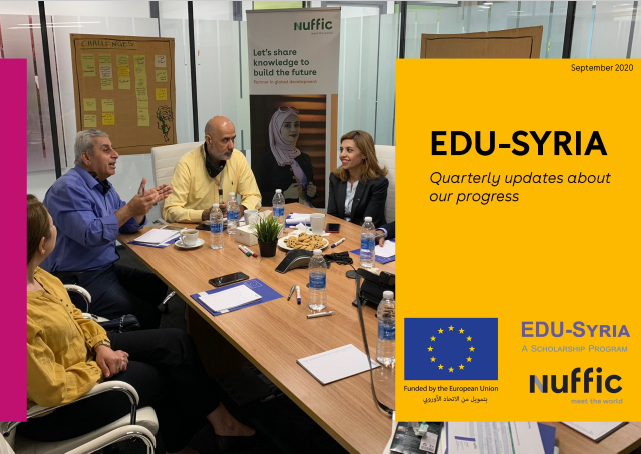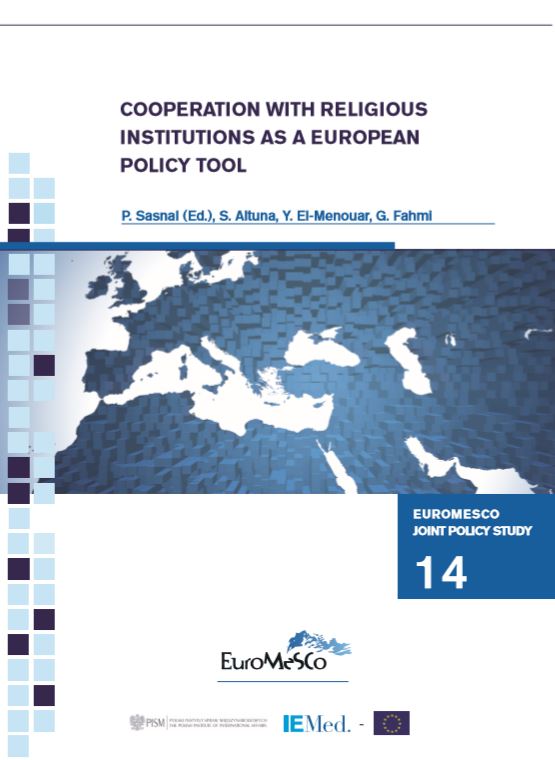Opinion Poll 2021 – Syria (factsheet)

On knowledge and understanding of the EU, the best understanding was related to the question on the fact that the EU is an economic and political union of 27 European countries – to which 55% answered yes; and on whether the euro is the currency of all EUMS, to which another 55% responded yes. 43% also knew that the EU has its headquarters in Brussels.
12% of respondents in Syria have a positive image of the EU. This increases to 25% among the 15-24 years old, and 14% among the 25 to 39 years old, indicating that young Syrians are much more likely to have a positive image of the EU.
52% of Syrian respondents associate the EU the most to economic prosperity, followed by 50% who associate it to peace and security , 42% to social justice, 40% to the rule of law and good governance; and 40% to solidarity.
8% of Syrians feel positive about the EU’s relationship with their country, and 13% believe that the partnership is important.
Syrians associate the EU with support for refugees and displaced people the most, with 23% of respondents being aware of this type of cooperation. Then came social protection, with 11% of respondents citing it, followed by education and skills (6%), culture (5%), and youth (5%).
Respondents believe that Syria benefited the most from support in humanitarian aid (16%), education and skills (13%), civil society (10%), health (8%), and human rights (6%). In Syria, 16% were aware of support related to the Covid-19 pandemic, and 36% of those who heard of it believe that it was effective. 9% of respondents said the EU could be more involved in humanitarian aid, 6% mentioned education and skills and 4% health.
This survey – part of a wave of opinion polls carried out in eight southern Neighbourhood partner countries – was conducted in Syria between July and September 2021, with 1,001 people consulted in face-to-face interviews. Respondents were asked about their general perceptions of the EU and the values with which it is associated, about EU relations with their country, and the impact of EU financial support, including in supporting their country’s response to the COVID-19 crisis. The surveys also look at preferred sources of information, how people feel about their personal situation and the situation in their country, and their expectations for the future.
Read more
Latest Publications































 Syria
Syria 



